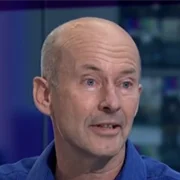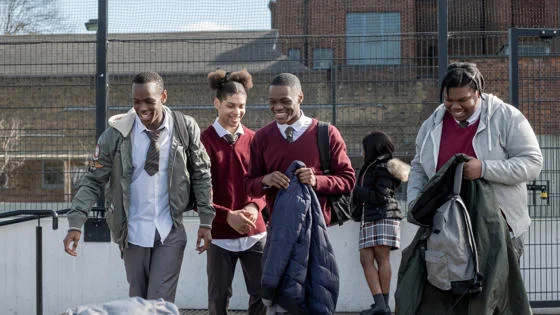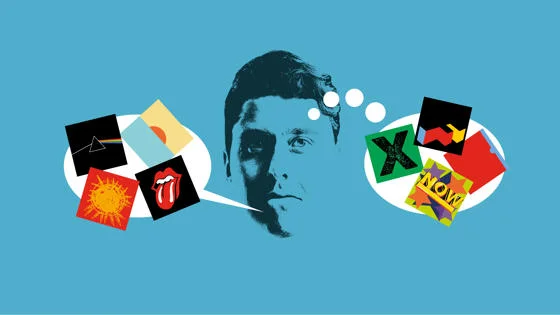Can music shape our understanding of poverty and inequality?

Contents
When was the last time you listened to music? Maybe it was this morning on the radio. Or in the supermarket yesterday while shopping for groceries. Perhaps you had your headphones in on a recent walk or maybe you’re listening to a playlist right now while browsing online.
"Music is so pervasive. It’s all around us and that makes it an important characteristic of all societies and social groups," explains Professor David Lewis, an expert in international development at LSE.
Professor Lewis has been working with colleagues Professor Dennis Rodgers (Graduate Institute, Geneva) and Professor Michael Woolcock (World Bank and Harvard) for 15 years on the relationship between the humanities - including literature and film as well as music - and international development.
After casually discussing an unusually powerful Indian novel they had all recently been reading - Rohinton Mistry’s A Fine Balance - the trio realised that social scientists often underestimate the value and strength of fiction in conveying issues around poverty and inequality. As a result, they decided to investigate further the relationship between popular culture and development issues.
Music reflects society warts and all. It informs and integrates people, but it can divide us too.
How can Bob Dylan provide insight into the world of development studies?
In their paper, Professor Lewis and his colleagues focus on the role of music as resistance, as part of development interventions, as commodification and appropriation, and as a force that helps to shape the public understanding of foreign aid and international development.
"With my background in anthropology, I’m interested in understanding systems of knowledge and the social and cultural dimensions of development. I also love listening to and making music," Professor Lewis explains.
One area highlighted in the paper is the role of music as "protest", a form that has long both called for and reflected social change. In the 1940s, as decolonisation struggles intensified in Africa, Ghana’s "high life" dance music scene shifted to reflect Kwame Nkrumah’s movement for self-determination. During the 1960s, musicians such as Bob Dylan, Joan Baez and John Lennon became part of the anti-war movement in the West. Today Senegal’s Geji Hip Hop women’s collective is a site of resistance to gender violence.
The authors outline how the UK’s Rock Against Racism movement in the 1970s - where a collection of musicians united through gigs, carnivals and tours to spread anti-racist messaging - became significant in creating a politics of solidarity. The movement connected the emerging traditions of punk rock from the Global North and reggae from the Global South, bringing together and fusing different subcultures of resistance.
Further political and cultural movements in the 1980s built on this foundation and educated people about global affairs, such as the Anti-Apartheid concert in London in 1988 that paid tribute to Nelson Mandela on his 70th birthday.
The art of resistance: how music can spread the politics of solidarity
Professor Lewis argues that not only is protest music a means through which the politics of solidarity can be expressed, it is also a channel through which ideas about inequality and injustice can be communicated to mass audiences.
Indeed, he recalls the impact political music had on him in early life. "Movements such as Rock Against Racism were a way of learning about the world, engaging in formative political activity and thinking about what it means to be a global citizen."
More recently, protest music has continued to play a role during tumultuous political climates with a slew of anti-Trump and anti-Brexit tunes gaining popularity. The Russian feminist punk collective Pussy Riot regularly make headlines with songs decrying Putin’s regime.
The Concert for Bangladesh was culturally significant… [but] you can also see how it fed unhelpfully into narratives of the ‘third world’ being a place of hunger and disaster.
While protest music is normally associated with political messaging, the team draw a distinction between this tradition and the use of music for fundraising purposes.
Musical events such as the 1971 Concert for Bangladesh organised by former Beatle George Harrison and Indian musician Ravi Shankar were put together primarily to raise funds and resources. While the researchers find that the concert expressed progressive messages of international solidarity, they argue the images of starving people that were used alongside the concert failed to engage with the underlying structural or political conditions that lay behind the crisis.
"While the Concert for Bangladesh was a culturally significant event in raising awareness around a huge political and humanitarian issue, you can also see how it fed unhelpfully into narratives of the ‘third world’ as a place of hunger and disaster, reinforced passive stereotypes, and led directly to more questionable events like Live Aid," notes Professor Lewis.
And this question of the tensions between popular culture as creativity, efforts to instrumentalise it as a tool to promote social change, and the commodification of cultures, is one the researchers are keen to consider. "Music reflects society warts and all. It informs and integrates people, but it can divide us too."
Music has the power to create connections and break down barriers
In considering this, Professor Lewis discusses the example of "world music" – a marketing category created in the 1980s. On one hand, he argues this categorisation commodifies the culture of non-Western societies. Yet it is also impossible to deny that music has the potential to facilitate cultural exchange through exposing people to new sounds and ideas. "These contradictions are always going to be there," he acknowledges.
Through quoting the famous line from Henry Wadsworth Longfellow that "music is the universal language of mankind", the researchers argue music has the power to break down barriers and enable people to communicate meaningfully in a way that evokes emotion and solidarity. During fraught and uncertain times, maybe it is music that can help bring us together.
The Sounds of Development
The following playlist, compiled by Professor Lewis, features songs that highlight the interface between development and music.
Woody Guthrie
I Ain’t Got No Home In This World Any More (1940) - a US 1930s Depression era song capturing the plight of the dustbowl refugees.
Edwin Starr
War (1970) - a classic US protest song.
Miriam Makeba
Soweto Blues (1977) - an example of South African jazz influential in the freedom struggle.
Junoon
Mahiwal (1997) - Sufi-rock from Pakistan.
Paban Das Baul / Sam Mills
Dil Ki Doya Hoyna (1997) - a modern "fusion" song in the Bengali Baul tradition.
Africa for Norway
Radi-Aid (2012) - a parody video of the 1985 Live Aid concert and other similar initiatives.
Yegna
Abet (We are Here) (2013) - a video from the UK Aid supported women and girls’ rights and development initiative in Ethiopia.
Aga Khan Music Initiative
Introduction Film (2014) - an overview of an inter-regional music and arts education programme run by the Aga Khan Trust for Culture.
She Drew the Gun
Poem (2016) - a contemporary band from the UK known for its political lyrics.
Genji Hip-Hop collective, Senegal
Breaking Taboos (2019) - a feature on music as empowerment.
Professor David Lewis was speaking to Charlotte Kelloway, Media Relations Manager at LSE.
Download a PDF version of this article




